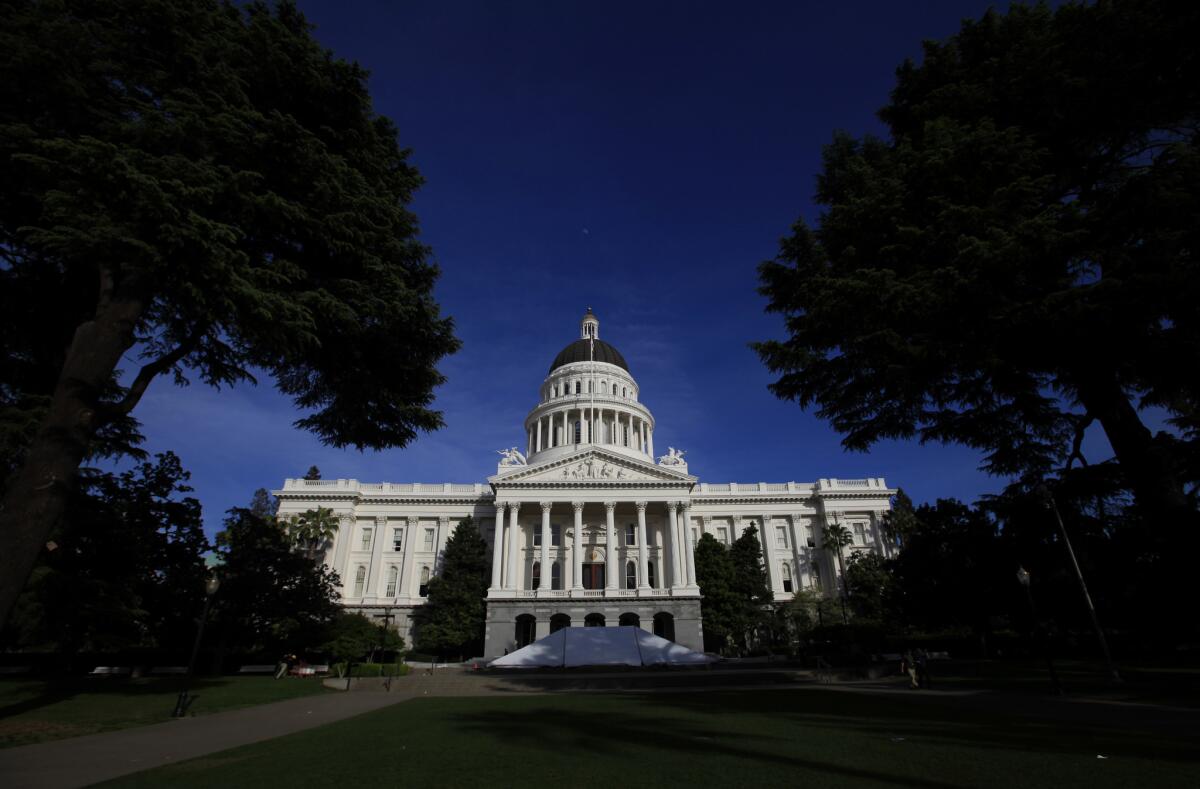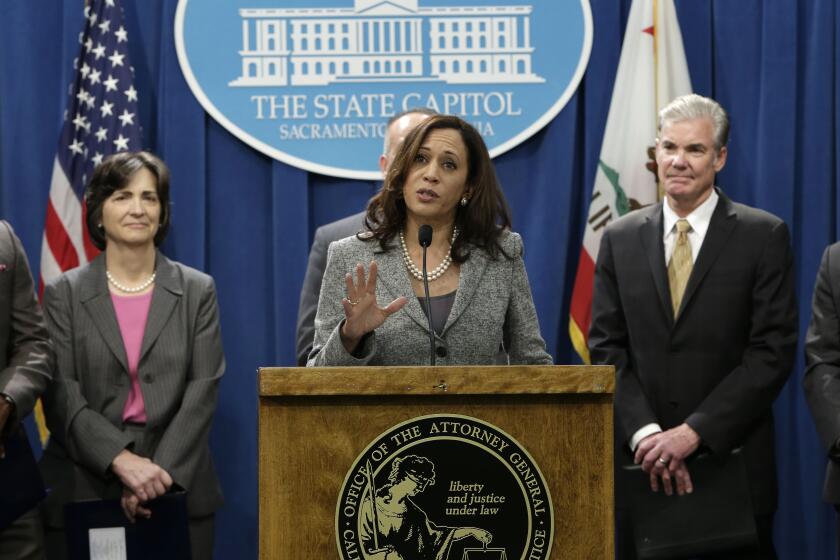Opinion: Making democracy more accessible to millennials and everyone else

A website, Digital Democracy, has started up for those of us interested in the goings on in the Capitol in Sacramento.
It’s long been an embarrassment that the government representing the state that gave the world the iPhone, Google and Twitter sported such clunky digital tools itself. You’d think some of the innovation that spews daily from Silicon Valley would have spilled over into the state’s capital.
That’s why DigitalDemocracy.org, a government access site developed by the Institute for Advanced Technology & Public Policy at Cal Poly San Luis Obispo, is so very welcome. The site opened officially to the public this week. And, for those of us interested in the goings on in the Capitol, it’s pretty fabulous.
There’s almost nothing on the site that you couldn’t find online yourself (transcripts of hearings are the exception) -- if you had the time to wade through pages and pages of campaign contributions on Cal-Access; or to sit through three hours of committee hearing video on CalChannel to find the one bill you care about; or to spend the time sifting through Google trying to figure out the affiliation of the guy in the lovely Armani suit who spoke so eloquently at a hearing the other day. But who, other than journalists, legislative staffers or Capitol lobbyists, has the time or patience for that?
You can tell that millennials had a hand in designing Digital Democracy because it has the kind of functionality and interactivity that younger users expect. For example, a Google-type search that actually works. Type in “vaccination,” for example, and up come listings for hearings during which that word was actually spoken out loud, along with video clips of the part of the hearing where that keyword was uttered. You can easily send out one of those clips on Facebook or Twitter or other social media, with comments like, “there’s like a million people testifying about#SB277.”
It is also exceedingly easy to find hearings, bills and information about legislators and power brokers in Sacramento. And the listings for speakers -- the people, paid or not, who testify in public hearings -- are sublime. The site is still a work in progress and will be adding facial recognition technology and other improvements.
In case you were wondering, there were 62 returned search results for “vaccination.” Not much, but that’s because so far the site only searches hearings from 2015. That will change as the database grows. If it grows. DigitalDemocracy.org was built with one-time grants worth about $1.2 million. The money runs out in September -- and so will the site’s usefulness unless it gets more funding, preferably for the long-term.
I asked Sam Blakeslee, a former legislator and founding director of the Cal Poly institute that developed this site, if it was possible that the state itself could take over operation and funding.
Blakeslee didn’t say that would happen only over his dead body, but he was pretty emphatic about that not being the goal of the project and, in fact, that such a thing would be the fastest route to the “ossification” of the endeavor. I get it -- site functionality and transparency might not be as high a priority for the people inside government as it is for those outside. I just hope someone else, with lots of money to share, gets it too.
Follow me on Twitter @marielgarzaLAT
More to Read
A cure for the common opinion
Get thought-provoking perspectives with our weekly newsletter.
You may occasionally receive promotional content from the Los Angeles Times.











